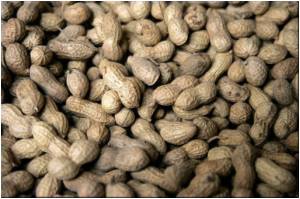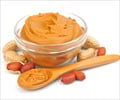Eating peanuts during pregnancy may reduce allergy risk in children, says US study.

Among those, researchers found 140 cases of children who were allergic to nuts.
When they looked into the mothers' diets during and soon after pregnancy, as reported in the Nurses Health Survey II, they found that women who ate five or more servings per week of peanuts or tree nuts, such as cashews, almonds and walnuts, were far less likely to have children who were allergic than women who avoided nuts.
"Our study showed increased peanut consumption by pregnant mothers who weren't nut allergic was associated with lower risk of peanut allergy in their offspring," said senior author Michael Young of the Boston Children's Hospital Division of Allergy and Immunology.
"Assuming she isn't allergic to peanuts, there's no reason for a woman to avoid peanuts during pregnancy."
Doctors used to recommend that women steer clear of peanuts while pregnant and nursing, out of concern they might lead to allergies in children.
Allergies arise when the body treats nuts as a harmful invader. Symptoms can be severe and even fatal, causing hives, rashes, swelling, difficulty breathing and a swift drop in blood pressure.
Subsequent studies, like the latest one in JAMA, have shown that exposure is more likely to be helpful than harmful, though some confusion remains among the general public on the issue.
"Our study supports the hypothesis that early allergen exposure increases the likelihood of tolerance and thereby lowers the risk of childhood food allergy," said the JAMA article.
Young noted that researchers cannot say that eating more peanuts in pregnancy will prevent peanut allergy in children.
"But we can say that peanut consumption during pregnancy doesn't cause peanut allergy in children," he said.
Source-AFP
 MEDINDIA
MEDINDIA




 Email
Email










